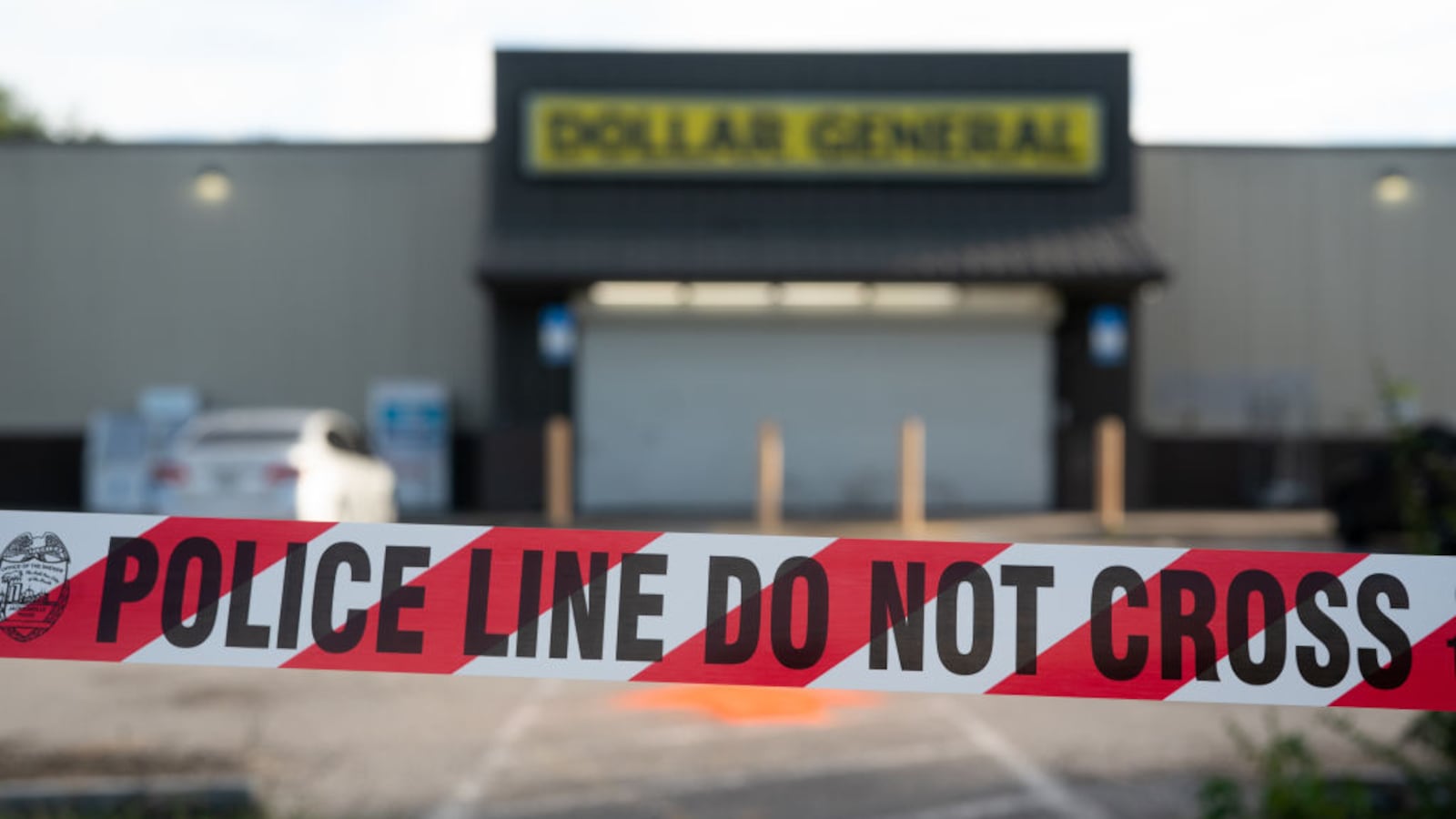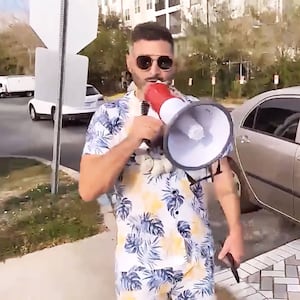Months before a gunman fired a swastika-covered rifle at Black shoppers in a Jacksonville, Florida Dollar General on Saturday, a white supremacist group spray-painted its logo and “reclaim America” on a city billboard.
A different white supremacist group posted racist stickers around Jacksonville months before that. Weeks earlier, a third white supremacist group projected a swastika onto a Jacksonville building, following a fourth white supremacist group that also used a laser projector to beam its own antisemitic message onto a Jacksonville building in late 2022.
Saturday’s mass shooting, by a white gunman reported to have penned racist manifestos, was the latest incident in a drumbeat of racist violence targeting Jacksonville. Some of those displays have been “brazen,” part of an effort to terrorize minority communities in Florida, human rights organizations say.
“It is deeply disheartening that our Black communities live in constant fear of being targeted based on the color of their skin, unable to shop at their local store without the threat of violence,” the NAACP’s Jacksonville branch said in a statement. “It is particularly poignant that this event occurred on the anniversary of the mass shooting at the Jacksonville Landing five years ago and on the 60th anniversary of the March on Washington.”
Jacksonville is no stranger to racist attacks. Saturday’s mass shooting came one day before the 63rd anniversary of “Ax Handle Saturday,” an incident that saw approximately 200 white attackers descend on an anti-segregation protest in a Jacksonville park, where they bludgeoned the mostly Black demonstrators with baseball bats and ax handles.
In recent years, Jacksonville—and Florida as a whole—have seen a new surge in racist activity, data suggests. The Anti-Defamation League has recorded a multi-year upswing in Florida hate crimes, Jacksonville’s News4Jax reported in September.
Florida also ranked eighth on the ADL’s list of states with the highest levels of racist propaganda distribution in 2022. Some of that hate came from a cluster of new hate groups, like a Florida-based chapter of the antisemitic “Goyim Defense League” and the Jacksonville-based neo-Nazi group “NatSoc Florida.”
Both groups have used projectors to beam swastikas and antisemitic slogans on Jacksonville buildings in recent months. And leaders of both groups were stopped by the Jacksonville Sheriff’s Department last October while holding antisemitic banners above a Jacksonville highway. First Coast News reported that the leader of the GDL was questioned because he was flying a drone over the road, in violation of Federal Aviation Administration rules.
According to a police report, no one was arrested, but police “thanked the group for their cooperation and apologized for taking up so much time of Mr. Nunes [NSF leader Josh Nunes] and Mr. Minadeo [GDL leader Jon Minadeo].”
After Saturday’s mass shooting, civil rights groups were quick to note neo-Nazis’ intimidation tactics in the city.
“This occurred after an uptick in brazen public displays of antisemitism from the Goyim Defense League in Jacksonville made headlines in recent months,” Western States Center, which tracks extremism in the U.S., said in a statement.
During a Sunday memorial service for the victims of the shooting, Jacksonville Mayor Donna Deegan connected the attack to past racism—and new campaigns to stifle civil rights.
“It feels some days like we’re going backward,” Deegan said. “I’ve heard some people say that some of the rhetoric that we hear doesn’t really represent what’s in people’s hearts, it’s just the game. It’s just the political game. Those three people who lost their lives, that’s not a game.”
The rise in overt bigotry comes amid new laws that limit how Florida educators can teach about race and racism. Those policies led the NAACP to issue a travel advisory to Florida earlier this year.
“Florida is openly hostile toward African Americans, people of color and LGBTQ+ individuals,” the organization said in a May statement. “Before traveling to Florida, please understand that the state of Florida devalues and marginalizes the contributions of, and the challenges faced by African Americans and other communities of color."






